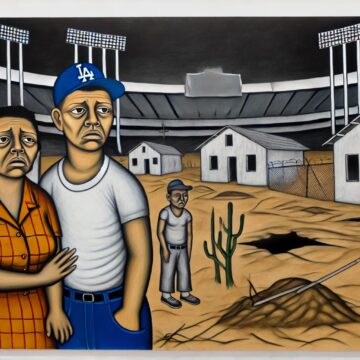Thirty-five years ago, Photoshop emerged from the special effects labs behind Star Wars, revolutionizing digital creativity. Now, strangled by Adobe's profit-driven subscription model, it’s bloated, sluggish, and frustratingly overpriced. How did the software that reshaped visual storytelling become the ultimate example of corporate greed over user experience?
Category: Capitalism
Methadone Monopoly and the Theft of Public Funds: Few Profit While America Stays Hooked
America’s methadone maintenance system has become a multi-billion-dollar behemoth, fueled by taxpayer subsidies that keep people dependent on opioids rather than fostering genuine recovery. This article exposes how a privileged few profit while crucial community services—mental health care, physical therapy, and nutrition—go underfunded. It calls for redirecting resources into comprehensive support that addresses the root causes of addiction, challenging the deeply entrenched profit motives that dominate American healthcare.
The Las Vegas Sphere is Just Ahead of Its Time (and Overpriced)
The Sphere is indeed overpriced, over-hyped, and often over-the-top. It's also genuinely innovative, technologically astounding, and—if Las Vegas chooses to see it—potentially transformative. The question isn't whether the Sphere is overpriced—it objectively is. The question is whether its price tag represents waste or investment. If it remains merely a concert venue and billboard, Las Vegas will have built the world's most expensive gimmick. But if the city can reimagine the Sphere as public infrastructure—a communication tool, an emergency system, a community showcase—then future generations might look back and say Las Vegas was onto something.
How Elon Musk Went From Visionary to Villain in Record Time
Elon Musk, once celebrated as a visionary, is now unraveling under the weight of his own hubris. His chaotic mismanagement of Twitter (now "X") gutted its moderation, alienated advertisers, and turned it into a haven for spambots and extremists. Tesla, once synonymous with innovation, now struggles with delays, recalls, and regulatory scrutiny over its self-driving promises. Neuralink faces ethical concerns, Hyperloop fizzled out, and SpaceX’s achievements are overshadowed by Musk’s erratic behavior. His compulsive overpromising, questionable ethics, and reckless social media antics have transformed him from a tech icon into a self-destructive figure, more meme than mastermind.
Chavez Ravine: A Neighborhood Erased for Dodger Stadium
Chavez Ravine, once a thriving Mexican-American community in Los Angeles, was demolished in the 1950s under the guise of urban renewal to make way for Dodger Stadium. This article explores the history of Chavez Ravine, the political forces behind its destruction, and the broader implications for racial injustice and housing inequality. Through the lens of urban development, it examines how communities of color were targeted, displaced, and erased, with a legacy that continues to shape housing policy and civil rights struggles in Los Angeles and beyond.



